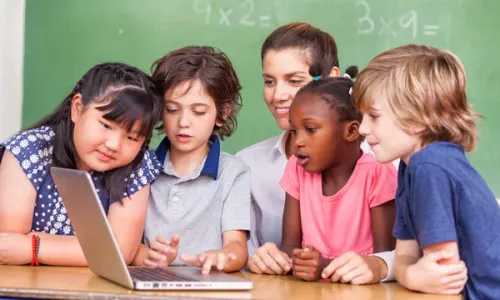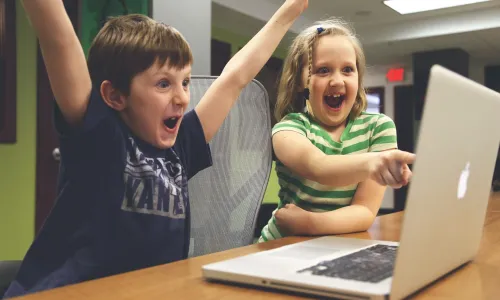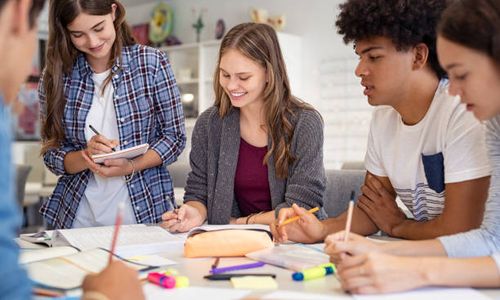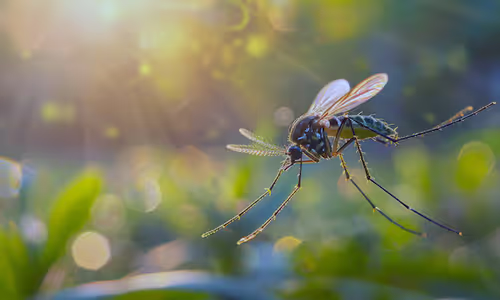Answers For [Trainer] - Assignment on how babies and children learn
Answers and detail explain for [Trainer] - Assignment on how babies and children learn
EXPLAIN
[Trainer] - Assignment on how babies and children learn

MAYA: So, Daniel, shall we compare a few ideas for our assignment on how babies and children learn?
DANIEL: Good idea. I've started the reading. One thing I read about was these learning videos.
MAYA: Oh, yeah. I read about learning videos. The baby watches a short film with some basic vocabulary, maths and science, and they learn as they watch. That's the idea. Certainly, babies will pay attention to videos for long periods of time.
DANIEL: Yeah, but there's been research to show that babies don't learn effectively from screens. 1Actually, they learn by interacting with their parents and other caregivers. That's the best approach.
MAYA: It's interesting. Another issue with learning videos is that babies ought to have play time.
DANIEL: You mean in a group?
MAYA: Not necessarily. It can be alone, actually. But what's important is that they investigate their own environment. 2They should examine the objects around them and experiment, so they discover information for themselves and they don't get that sitting in front of a film.
DANIEL: That's a good point. Then I also thought I'd write about the present research in my assignment.
MAYA: Oh, yeah. I read a bit about the present research, and it's true, isn't it? When you give a baby a present or gift, some of them are more interested in the wrapping paper than the present itself.
DANIEL: 3But it's not some of them. The research shows that pretty much every baby prefers the paper to the present, whether male or female. It's just a human characteristic.
MAYA: Really? I thought there'd be more exceptions.
DANIEL: Apparently not. It seems that playing with the paper or ribbons or box stimulates the baby senses. They touch everything, climb into the box, put the ribbon into their mouths, and brain scans have shown that sight, sound, touch, smell, and taste are all stimulated in this way.
MAYA: 4It's amazing. The researchers produced so much specific information just from studying presence. I hadn't expected that. The results cover so many different aspects of baby behavior.
DANIEL: Yeah, exactly. But it shows us that babies learn by playing
MAYA: So we shouldn't stop wrapping up baby's presence.
DANIEL: No, definitely not.
MAYA: Then I also read about babies and second languages. There was a really interesting bilingual experiment in Spain. They tried teaching English to a group of 280 Spanish children in different preschools.
DANIEL: So the research subjects were in different schools?
MAYA: 5Yes, but the researchers deliberately selected teachers who all had the same education. They'd been trained to use a style that focused on play and social interaction. So because of that, the experiment was standardized across all the schools. That's really important.
DANIEL: Yeah, I agree. That was a great idea.
MAYA: The subjects were aged between seven months and three years old, and the children were given a 1 hour English lesson for 18 weeks.
DANIEL: Did they seem to enjoy the lessons?
MAYA: I don't have any information on that. But at the end of the experiment, each child could produce an average of 74 English words or phrases
DANIEL: But did they remember them?
MAYA: Well, 6follow up testing showed that the classes had a long term benefit. Yes.
DANIEL: Wow. That's remarkable. Especially considering some of the children were so young.
MAYA: I think so, too. It really shows how babies and small children can learn through playing.
DANIEL: Yeah. I wonder if other schools will try the same thing in future.
MAYA: It'll be interesting to see what happens
DANIEL: So, Maya, let's discuss some more ideas about how babies learn. What other research have you read about?
MAYA: Well, I read about Dr. Prichard's study. In her experiment, babies were given toys to play with, and their caregivers sometimes repeated the same movements as the baby, and sometimes did something different. And Dr. Prichard monitored the baby's electrical brain activity. 7The results showed that babies were happiest when parents or caregivers imitated their behavior.
DANIEL: Maybe that could be used as a teaching tool.
MAYA: Yeah, absolutely.
DANIEL: Then I read about a study of three year olds. This was interesting. The researchers experimented by doing things like dropping a pen or knocking something off a desk.
MAYA: And did the children do the same thing?
DANIEL: 8No. What they often did, though, was pick up the pen. They wanted to give someone assistance if they could, if they thought someone else had a problem. So I think that shows how babies are more likely to learn by working with caregivers and teachers rather than in isolation.
MAYA: Then have you heard of Professor Michelson?
DANIEL: Is he a linguist?
MAYA: You're thinking of someone else. Professor Michelson did a study where babies had to push buttons, some buttons switched on a light, and some didn't. And after a little experimentation, the babies nearly always pushed a button that switched on a light.
DANIEL: You mean they knew the light would come on?
MAYA: Professor Michelson thinks so. 9He believes they recognize that a certain thing would happen as a result of a certain action. So maybe that has implications for learning.
DANIEL: Interesting. I also looked at a study in the United States. 10This showed that babies as young as 16 months have some knowledge of how language is structured. In a simple sense, they seem to know the function of nouns and verbs. And the researchers believe this is linked to the way they learn the meaning of new words.
MAYA: Oh really. Amazing they start so young. I'd like to read about that study because that sounds so amazing
Questions 1 - 2:
Choose TWO letters, A-E. What TWO problems do the students identify with ‘learning videos’?
A.
B.
C.
D.
E.
Questions 3 - 4:
Choose TWO letters, A-E. When discussing the ‘present research’, Maia is surprised that
A.
B.
C.
D.
E.
Questions 5 - 6:
Choose TWO letters, A-E. What impresses the students about the bilingual experiment in Spain?
A.
B.
C.
D.
E.
Questions 7 - 10:
What comment does the speaker make about each of the following events?
Write the correct letter, A, B or C, next to questions 7-10.
NB You may use any letter more than once.
Findings
|
A. Babies understand cause and effect. |
Research studies
What comment does the speaker make about each of the following events? Write the correct letter, A, B or C, next to questions 7-10. You may use any letter more than once.
Correct answer: C
Correct answer: F
Correct answer: A
Correct answer: E


![[Forecast Q2-2025] - Voluntary Job Hunting](https://static.helik.app/reading/3d99bcea-7669-4211-8b5b-4d757de35365)

![[C20T1] - Research into Loneliness](https://static.helik.app/reading/1387398a-6383-4378-84c8-bc8db2183c82)

![[Recent Actual Tests] - Public Service broadcast](https://static.helik.app/reading/b3dbbc2d-55fd-4def-aac4-5ca5df7fc123)